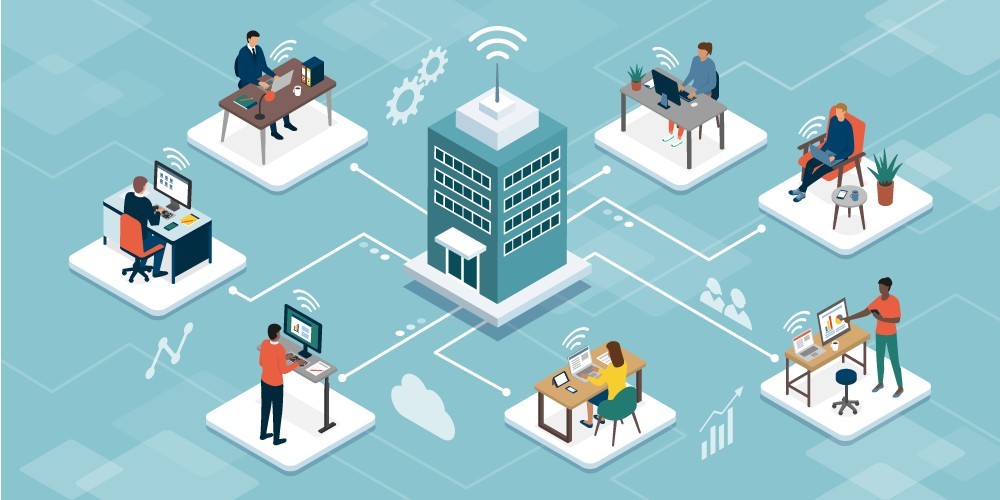With remote workers becoming the ‘new normal’ in these strange times, remote office security and communication become increasingly important. Read on to learn more about preparing your employees and business for remote work.
Remote Office Security Best Practices
Let remote workers know they are just as responsible for keeping the network safe at home as at the office. Have them maintain a dedicated work space in their home office, where they do only work, and not personal, computing. Physical security is important too; make sure that other family members, if any, don’t have access to equipment used for work. The remote worker will need to conduct phone calls where any confidential information can’t be overheard. Anything the remote employee prints should be shredded after use. Another good practice is keeping the office door locked if not in use. Logging off is an important practice, even if only leaving the computer for a moment. If the remote employee is using their own computer, it needs current anti-malware and antivirus protection, backup and operating system patches. A firewall with a subnet for personal vs. business should also be established. Businesses responsible for complying with regulations such as HIPAA have even more stringent security requirements. Learn more about managing a mobile workforce here.
Just as you’ve been busy, so have cybercriminals. A common practice is phishing using social engineering. A cybercriminal can send an email that looks like it’s from a government source, providing links to sites that will automatically download ransomware. Remote employees need to be trained how to verify if the email is genuine; if it isn’t, they need to report and delete it.
Supply Remote Workers with the Right Equipment
In order to succeed working remotely, workers will need access to basic equipment. A computer, of course, is a must, along with phone access. If the worker has their own computer, it will need to be checked and brought up to date with anti-virus and malware prevention. This will prevent any malware that could steal company credentials to sensitive data, or the data itself. Ideally, remote workers can connect to the office network with a broadband Internet connection) via a VPN. As for phones, many businesses are turning to cloud solutions for VoIP and other collaboration solutions. Many of these turn your desktop or laptop into a virtual phone. As long as the employee has a broadband Internet connection, they will be prepared to take part in videoconferencing as well.
Keep Lines of Communication Open
Thanks to videoconferencing, a manager can–and should–hold regular meetings with those workers comfortable with that type of communication. Whatever type of communication is used, communicate with your workers your expectations for them. Perhaps they are working on the basis of results; they can work whenever they wish as long as the work is done. Let your workers know what to do and not to do on a work-issued computer. Common sense says if you wouldn’t do it at the office, you won’t do it at home, either. That applies to safeguarding the security of the computer and its connection to the company network.
To learn more about what’s required to work remotely, stay in communication with your workers, and stay secure in the process, contact your trusted technology advisor today.

